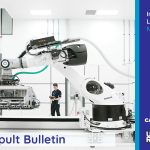Researcher in Residence: Transforming urban transport hubs

In a bid to revolutionise urban transport hubs and lead the way toward a Net Zero Carbon future, a groundbreaking research project is set to unfold, centering around the urban renewal of Bristol Temple Meads (BTM) rail station. A collaborative effort between the University of Bristol‘s Ges Rosenberg and Connected Places Catapult, the 15-month project leverages systems thinking, focusing on systems-of-systems and interdependency planning, with the broader goal of providing a blueprint for sustainable, decarbonised urban transport hubs globally.
The research will deliver a series of tangible milestones:
Best Practice Report: A comprehensive report highlighting international best practices in transport hub decarbonization, drawing insights from leading case studies worldwide.
Appraisal Report: An in-depth appraisal of opportunities for station decarbonization, accompanied by an exploration of the additional value BTM can create. The focus here is on leveraging the station’s agency to facilitate a shift toward ‘greener,’ more inclusive, and healthier modes of active travel.
Framework for Integration: A strategic framework for seamlessly integrating decarbonization and Net Zero Carbon viewpoints into the processes of station innovation, investment, and operational decision-making.
Digital Twin Blueprint: Building on this, the project will culminate in a meticulously documented blueprint for integrating decarbonisation into a ‘digital twin’ of the station and its operations. This includes modelling approaches, tools, datasets, and metrics essential for constructing station decarbonization strategies and business models.
The research goes beyond conventional methodologies by exploring the value of innovations in cyber-physical systems and place-based mathematical models, often referred to as ‘digital twins.’ These innovations are expected to provide through-life evidence, guiding more efficient and effective transitions to Net Zero.
This research aligns with the Connected Places Catapult’s five-year program to pioneer station innovations at Bristol Temple Meads.



